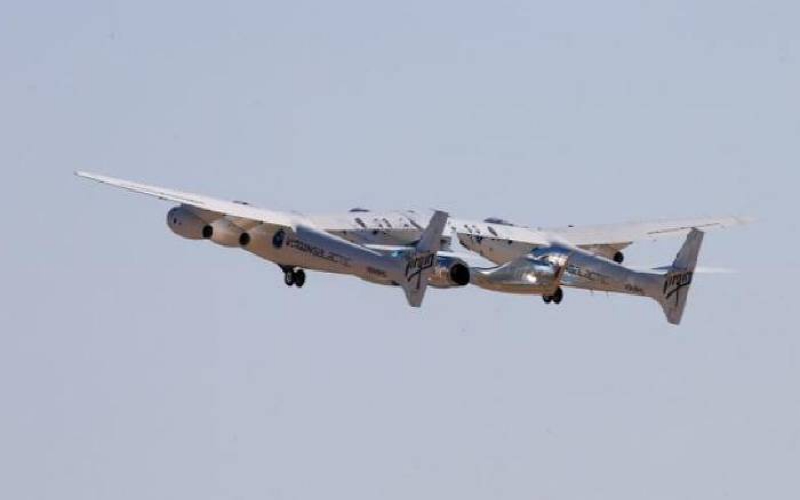×
The Standard e-Paper
Fearless, Trusted News

Virgin Galactic's passenger rocket plane VSS Unity, borne by twin-fuselage carrier jet dubbed VMS Eve, takes off with billionaire entrepreneur Richard Branson and his crew for travel to the edge of space at Spaceport America near Truth or Consequences, New Mexico, US, July 11, 2021. [Reuters]
British billionaire Richard Branson climbed into his Virgin Galactic passenger rocket plane on Sunday to ride more than 50 miles (80 km) above the New Mexico desert in the vehicle's first fully crewed test flight to the edge of space.